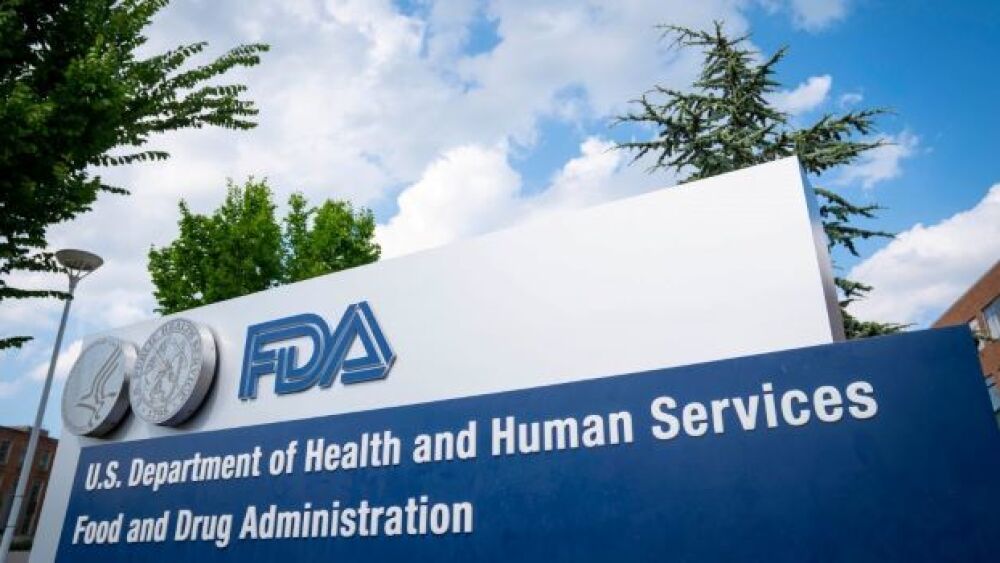FDA Action Alert for February 7
Sarah Silbiger/Getty Images
The U.S. Food and Drug Administration’s calendar for PDUFA dates has been relatively quiet so far this year, but it’s beginning to pick up now that we’re in February. Up this week are two important advisory committee meetings and a PDUFA date. Read on for more details.
Adcom for Innovent’s Sintilimab for Lung Cancer
The FDA’s Oncologic Drugs Advisory Committee Meeting is scheduled for February 10, 2022, to discuss Innovent Biologics (Suzhou)’s Biologics License Application (BLA) for sintilimab. The BLA is for the drug in combination with pemetrexed and platinum-based chemotherapy for first-line treatment of patients with Stage IIIB, IIIC or Stage IV non-squamous non-small cell lung cancer (NSCLC) with no epidermal growth factor (EGFR) or anaplastic lymphoma kinase genomic tumor aberrations.
Sintilimab, marketed as Tyvyt in China, is a PD-1 inhibitor jointly developed with Eli Lilly and Company. In China, it has been approved for r/r classic Hodgkin’s lymphoma after two lines or later of systemic chemotherapy; in combination with pemetrexed and platinum chemotherapy for first-line treatment of nonsquamous NSCLC; in combination with gemcitabine and platinum chemotherapy for first-line treatment of squamous NSCLC; and in combination with Byvasda (bevacizumab biosimilar injection) for first-line treatment of hepatocellular carcinoma.
Adcom for Pfizer-BioNTech’s COVID-19 Vaccine for Children 6 Months to 4 Years
In what will likely be closely watched, the FDA’s Vaccines and Related Biological Products Advisory Committee is scheduled to meet on February 15 to discuss an amended Emergency Use Authorization (EUA) for the Pfizer-BioNTech COVID-19 vaccine for children 6 months through 4 years of age.
Pfizer and BioNTech submitted the EUA request on February 2 in a somewhat unprecedented move where the agency placed the request for Pfizer to initiate a rolling submission. The vaccine has received full approval for its two-dose regimen in adults, and a third-dose booster in people 12 years and older. It also has an EUA for the vaccine in children 5 and older.
At that time, Pfizer reportedly was still collecting data on the third dose in the 6-month to 5-year age group, and there has been some puzzlement over the data for the two-dose regimen in this age group. Just before Christmas 2021, Pfizer announced that two child-sized doses of the vaccine didn’t provide as robust an immune response in the two-to-five-year-olds, although it did for the group from six months to two years. They announced they would evaluate a third injection eight weeks after the second for a new timeline.
Safety and effectiveness will be the key issues the advisory committee is likely to focus on. Dr. Paul Offitt, a member of the committee and director of the Vaccine Education Center at Children’s Hospital of Philadelphia, told CNN, “The confidence of the American public depends on that, that you’re recommending something that you would give to your own children. It all depends on the data. The data will tell us just how good these are. There should be a robust safety profile and a robust efficacy profile and immunogenicity profile. And if that’s true, speed doesn’t really matter, as long as they have those data.”
Agios’ Mitapivat for Pyruvate Kinase Deficiency
Agios Pharmaceuticals has a target action date of February 17 for its New Drug Application (NDA) for mitapivat for adults with pyruvate kinase (PK) deficiency. It is under Priority Review. The NDA is based on data from the Phase III ACTIVATE and ACTIVATE-T studies, run in not regularly transfused and regularly transfused adults with PK deficiency, respectively.
PK deficiency is a rare, inherited disease that presents as chronic hemolytic anemia. The current management strategies include red blood cell transfusions and splenectomy. Otherwise, there are no currently approved therapies.





